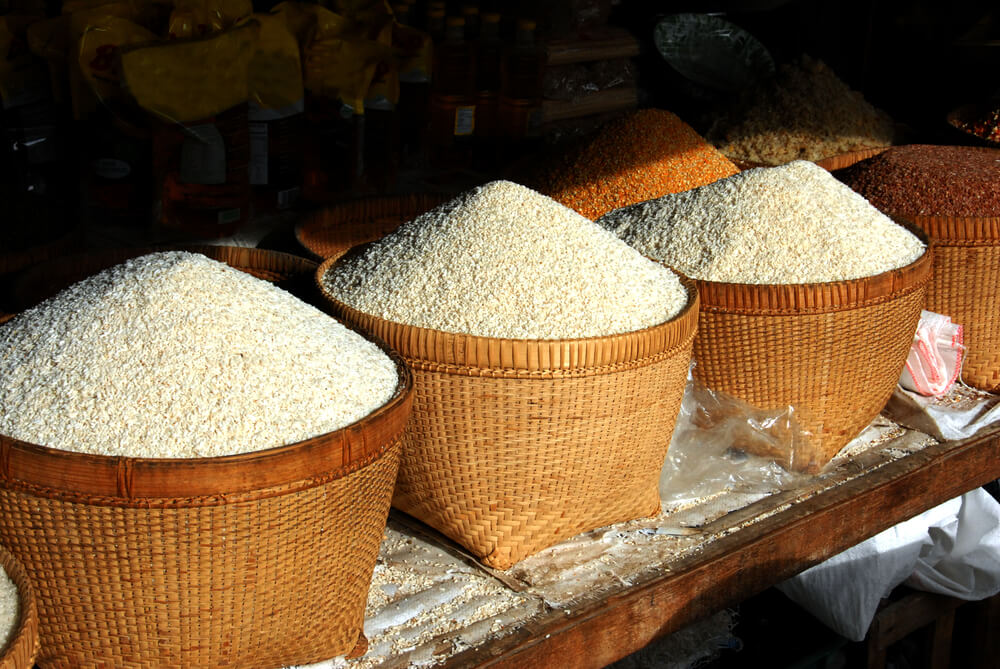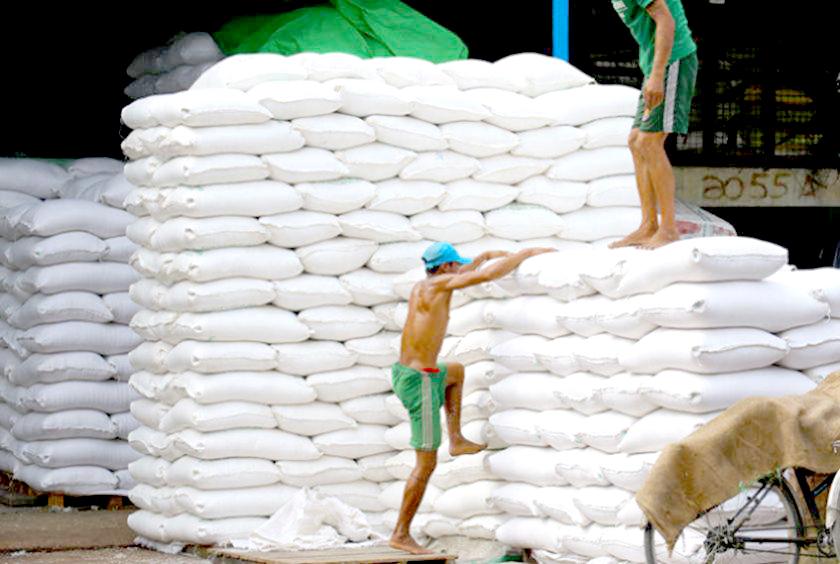CNI News
15 Feb 2023
A new export earning policy for rice and broken rice through border trade has been announced, according to rice merchants.
Exporters are required to sell 65 percent of their earnings at the designated price of the central bank of Myanmar within one working day and remaining 35 percent of the earnings have been allowed to be kept by merchants, according to merchants.
Previously, the policy was adopted only for mercantile trade of rice and broken rice and has now been expanded to the border trade.
The policy will affect rice exports through border trade and rice merchants will have to export rice and broken rice only after thoroughly calculating the prices, an official from Myanmar Rice Merchants Association told the CNI.

A rice shop
He said, "Border traders export rice in Yuan and Baht. As they can keep their earnings, it is profitable for them. Now, they won't be as profitable as before and rice exports from borders will decrease. The policy has been adopted in the mercantile trade since June or July. It has been rumoured that the policy would be adopted in the border trade. Now, it has been officially announced. Exporters will have to trade rice carefully because they are forced to sell 65 percent of their earnings at the designated price of the central bank. They can sell only 35 percent of their earnings at the market prices."
The policy was adopted only for other export items except rice and broken rice.
As the new policy will take effect on 1st March, traders are exporting as much rice and broken rices as they can before the deadline and have stopped buying rice and broken rice in the domestic market, according to border traders.
In the border trade with China, the market exchange rate for Yuan stood at MMK 426 but the central bank rate for Yuan was set as MMK 308 and traders are likely to suffer MMK 10,000 per bag losses, Vice Chairman U Min Thein of Muse Rice Exchange told the CNI.
He said, "The new poicy will take effect at the end of the month. Before the end of the month, trader are allowed to keep their export earnings by themselves. When they exchange their export earning into the Kyat, they will get MMK 426 for one Yuan. When the new policy takes effect, they will get only MMK 308 per Yuan for 65 percent of their Yuan earnings. They will suffer MMK 10,000 losses per bag. So, they are trying to export as much rice and broken rice as they can before the end of the month and have stopped buying rice in the domestic market."

Workers preparing to load rice bags
As exporters are likely to suffer losses, they may try to buy rice from farmers at lower prices but it is unclear whether farmers can sell their rice at the prices they offer, Secretary U Than Oo of Bayintnaung Commodity Exchange told the CNI.
He said, "Merchants will have to lower their buying prices of rice as it is not profitable but we will have to watch closely whether farmers can sell rice to them at their buying prices. As farmers will harvest their summer paddy in April, it is still difficult to predict the situation."
Although the Central Bank of Myanmar sets the US$ exchange rate at MMK 2,100 per dollar, market exchange rates have hit MMK 2,800 per dollar.
Due to the exchange rate gap of about MMK 700 per dollar, exporters will have to lower the buying prices of rice and rice prices are likely to fall, according to some observers.




